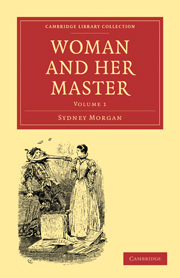Summary
To the dark and direful, but grand character of Athaliah, succeed the lives and deeds of better, and brighter women—of Huldah, the spiritual and the learned, of Judith, the brave and the devoted, of Esther, the wise and patriotic!
In the reign of Josiah, king of Judah, the king having flung down the idols which had long profaned the altars of the temple, a volume of great antiquity was discovered, in repairing that sacred edifice, so often sacrilegiously defaced. It had been buried under the rubbish of ages, and to the High Priest, Hilkiah, it was a sealed volume: its mysteries were beyond the powers of his elucidation.
It appears, indeed, that, among the learned and the holy, the priests and wise men of Jerusalem, there was not one who could expound the text, which excited alarm, as containing dreadful denunciations of God's wrath. The king then bethought him of a woman—of Huldah—the prophetess who “dwelt in Jerusalem, in the college:” the wife, says Josephus, of a man of great quality. He sent to her, because he feared that, to punish the crimes of the kings, his predecessors, and their transgressions of God's laws, he should be driven from his country, with all his people, to end miserably their days in a strange land. The prophetess told them that no prayers were efficient to obtain from God a revocation of his sentence; that the people would be driven from their country, because they had violated its laws without repentance, though they had so much time, and though the prophets had so plainly foretold what was to come.”
- Type
- Chapter
- Information
- Woman and her Master , pp. 201 - 214Publisher: Cambridge University PressPrint publication year: 2010First published in: 1840

